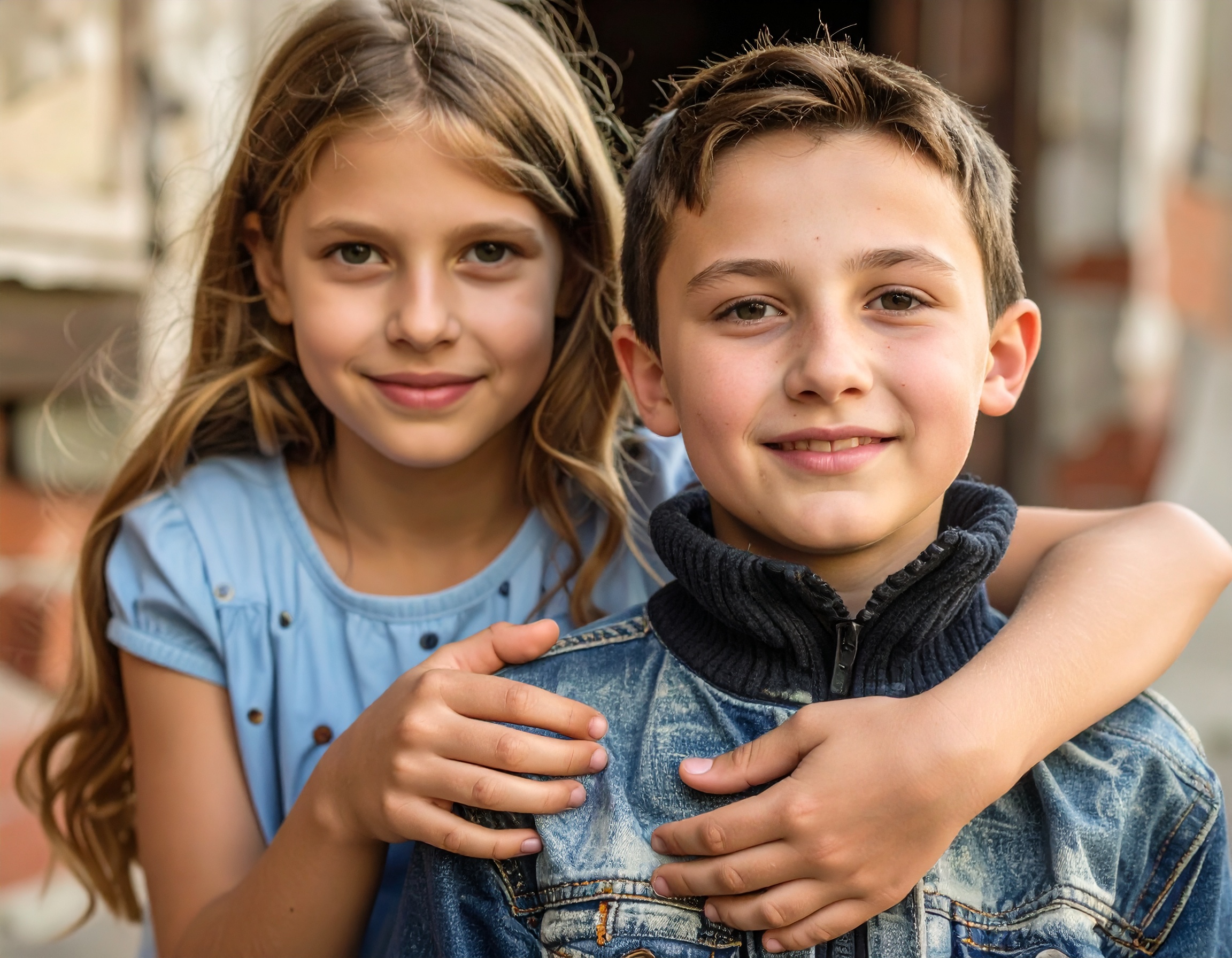CERV-CHILD_OUR VOICES project aims to promote the inclusive and systemic participation of Young Carers at local, national and EU levels to ensure that their voices are heard and listened to, especially in policy matters that affect them directly. More specifically, the project, building on a consortium of European organisations working with YCs and referring to the Eurocarers’ network, aspires to implement different and coordinated actions aimed to ensure that the pre-conditions for YCs’ active participation are met, that mechanisms supporting YCs’engagement in policy discussions are implemented and that strategies to overcome barriers preventing YCs’ participation are piloted and evaluated.
But let’s take a step back, what do we mean with “Young Carers”?
OUR VOICES focuses its activities on the target group of Young Carers “YCs”, defined as “children and young people under the age of 18 who provide care for a parent or relative in the community, usually within their own home”. YCs are an important target group to focus upon as they face multiple disadvantages. Indeed, YCs have been identified in the “Feasibility Study for the Child Guarantee (2019)” as among those at risk as living in precarious family situations and potentially exposed to several negative impacts, including their mental and physical health, educational opportunities, economic deprivation and whose rights as children are often at risk of being infringed.
Young Carers (YCs), as broadly identified, are a vulnerable group of children as their caring responsibilities often prevent them from fulfilling their developmental duties as non-caring peers would do. For example, YCs have been found to experience mental health problems, greater risk of being hospitalised for mental-ill health and experiencing suicidal feelings during adulthood, higher absenteeism and drop-out rates from secondary school and low employability later in life. Moreover, from a demographic point of view, YCs seems to be disproportionately more among girls and young people from migrant backgrounds / minority ethnic groups thus highlighting intersectional vulnerabilities.
The support systems in place to aid YCs varies significantly across EU Member States, but it is a matter of fact that public policies impacting on YCs intersect with several different policy domains, such as health care, social care, economic support, education, child protection, digital environment, etc. While, potentially, YCs should be actively involved in the decision-making process regarding policies that concern them, in reality across Europe examples of actions aimed to support active participation of YCs in decision making process are still very limited.
What is the OUR VOICES project about?
The project was officially launched in April 2025 and will run for 24 months. The official launch of the project took place with a meeting in presence in Brussels on June 17th and now all partners are activly working on the first project outputs to adress, dedicated to deepen the knowledge in relation to existing child participation mechanisms across the EU, with a specific focus on those involving YCs. This activity will entail mapping existing resources, guidelines, and good practices for YCs’ identification and self-identification mechanisms as well as YCs’-friendly establishment. This field research will feed into the piloting of tools to support the involvement of YCs in child participation mechanisms in schools, city councils, regional governments and at EU-level. While in the last phase of the project the focus will be on actions of capacity building for professionals enabling them to reach out to YCs, thereby improving their capacity to support the active engagement and participation of YCs.
Which partners are involved in the project?
The project consortium is structured around the Eurocarers network and brings together a diverse range of complementary expertise, competencies, and geographic coverage. It brings together organisations that work directly with YC, academic institutions conducting research on the topic, and a well-established EU-level network with the capacity to influence policy.
Specifically, project partners are:
- EUROCARERS (European NGO – Coordinator)
- ANZIANI E NON SOLO SOCIETA (Italy)
- LINNEUNIVERSITETET (Sweden)
- SOCIAL NETWORK ‘VESTA’ (Bulgaria)
- ZoJong! (Belgium)
- UNIVERZA V LJUBLJANI (Slovenia)
What are the project objectives and expected results?
OUR VOICES aims to create inclusive and systematic participatory environnement and mechanism for and with Young Carers. The project’s activities are expected to produce the following key results:
- Empowered Young Carers – Young carers will gain a better understanding of the value of participation and develop stronger advocacy skills to represent themselves in decisions affecting their lives.
- Better Equipped Professionals – Health, social care and education professionals will enhance their ability to identify young carers and adopt effective practices that support their active participation in decision-making processes.
- Stronger Collaboration and Policy Influence – Improved cooperation among stakeholders, including young carers, policy makers, professionals, and educators, will promote a sustainable, integrated model of support, replicable in other EU Member States. Ultimately, this will increase the presence and influence of YCs within local, national, and EU-level participation mechanisms.
The main innovation the project intends to trigger is about the acknowledgment of the role of YCs within families and communities and the impact that policies and practices in a variety of sectors might have on them. Thereby, realising the need to support YCs’ active participation in all decisions involving them as children and as carers by adapting and tailoring the participatory mechanisms to their specific needs and preferences. Thus, enabling YCs to fulfil their life goals. According to our research, there are no existing programmes having approached YCs’ participation in this regard and having piloted dedicated measures in this field.
Download this press release in:
English
Italian
Slovenian
Bulgarian
Dutch
Swedish
French


